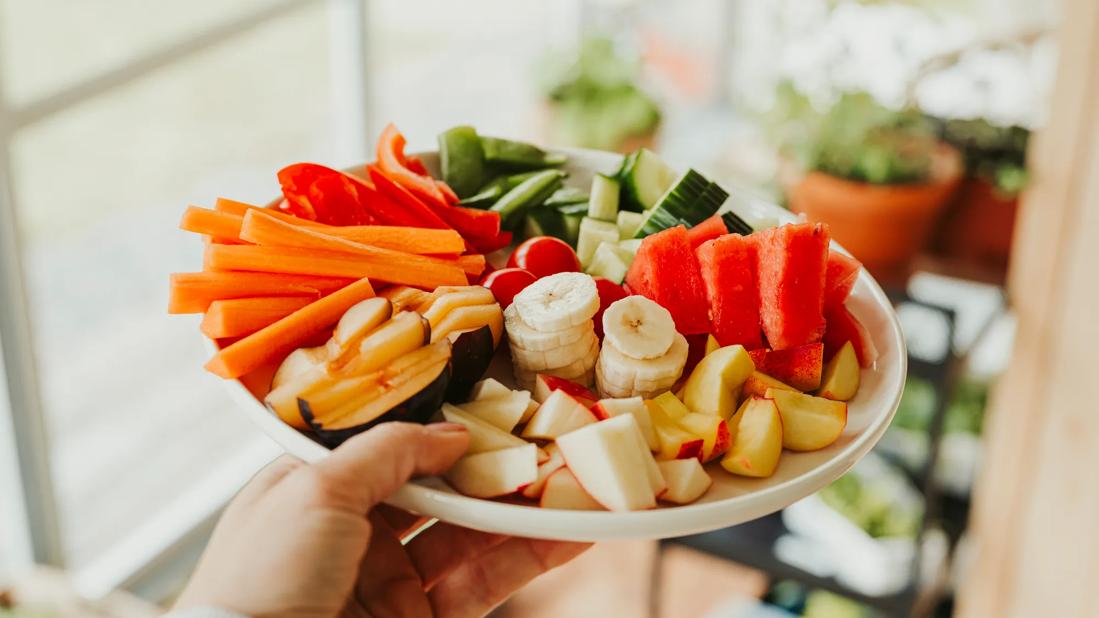Eating a healthy diet, reducing stress, and focusing on exercise and sleep can help keep your digestive system in top form

If you’ve got a bad feeling in your belly, it’s best to pay attention to it. What’s happening in your digestive tract can set the tone for your whole day. (Remember the last time you battled diarrhea? Yeah … that’s what we’re talking about.)
Advertisement
Cleveland Clinic is a non-profit academic medical center. Advertising on our site helps support our mission. We do not endorse non-Cleveland Clinic products or services. Policy
Keeping your gut healthy often comes down to how you’re living your life. Diet and day-to-day habits can make a BIG difference when it comes to your gastrointestinal system.
We asked gastroenterologist Christine Lee, MD, how to help your gut stay healthy.
Video content: This video is available to watch online.
View video online (https://cdnapisec.kaltura.com/p/2207941/sp/220794100/playManifest/entryId/1_bgbwukr6/flavorId/1_5f3sgelj/format/url/protocol/https/a.mp4)
A healthy gut isn’t just about feeling hunky-dory after you gobble down dinner. It’s also important for:
“Your gut health is central to your overall health,” emphasizes Dr. Lee.
Gut health largely hinges on your gut’s complex microbiome and the trillions of microbes — including “good” bacteria — that call it home. Maintaining a healthy balance of gut bacteria is essential for your overall health.
Here’s how to keep your gut from going off kilter.
When it comes to selecting food to help your gut stay in tip-top shape, you’ve got a lot of options. Try to take advantage of all of them, too, because eating an array of healthy foods helps your gut thrive.
That’s because a diverse diet helps your gut grow more types of good bacteria. The broader population of microbes makes it easier for your gut to handle whatever comes along.
Advertisement
“You want to have a wide variety in your diet,” says Dr. Lee. “Try to mix it up.”
That means eating more:
Don’t forget to hydrate, too! Water is crucial for gut health and to keep your digestive system running smoothly.
The food on this list won’t surprise you — and odds are, you’ve felt a little belly pain after overdoing it on one or more of the items. “That’s your body sending a message,” says Dr. Lee.
Foods to limit or avoid include:
Know that horrible feeling that hits your gut when you’re stressed? Well, there’s a reason for it.
Chronic stress can negatively affect the gut microbiome and throw your system out of whack. Stress triggers the release of hormones that can damage your gut lining. This can let harmful bacteria and toxins leak into your bloodstream.
Advertisement
“People always assume food is behind GI issues, but chronic stress or even being in a stressful situation can trigger stress hormone release that affects your gut health,” reports Dr. Lee.
If you notice gut issues flaring up during or following tense times, try some mindfulness activities to relax and destress. Examples include yoga, taking a hike, reading or just sitting and savoring a hot cup of tea.
Sleep deprivation can make your gut cranky.
Your gut microbiome has its own circadian rhythm, meaning it fluctuates throughout the day. Not getting enough quality ZZZs can interfere with this internal clock, leading to bacterial imbalances in your gut microbiome.
“If you’re sleep deprived, it really can throw off your circadian rhythm and affect your gut,” notes Dr. Lee.
Aim to get seven to nine hours of sleep a night to help your gut (and body) be at its best.
Want a prescription to improve gut health? Here it is: “Exercise is truly the best medicine on Earth,” says Dr. Lee. “Physical activity supports digestion and helps move food through your system. It takes the bad stuff out.”
In general, health experts recommend at least 150 minutes of moderate-intensity exercise per week for your health. That would include activities like walking, cycling or even working in the yard.
Advertisement
An entire ecosystem exists within your gut. What you eat, your daily stress levels, and how much you sleep and exercise can go a long way toward determining the health of that microbiome and you.
Signs of poor gut health include heartburn, bloating, intestinal gas and other unpleasant symptoms.
“It’s important to stay attuned to these sorts of symptoms,” advises Dr. Lee. “Pay attention to what sets them off. Listen to your body, and — if something feels off — talk to your doctor. When in doubt, check it out!”
Advertisement
Learn more about our editorial process.
Advertisement

You don’t need a strenuous or expensive fitness routine to keep your digestive tract in shape

The caffeine and natural acids in coffee may trigger acid reflux, but there are ways to lessen the effects

Alternating between periods of eating and fasting may benefit your health

Health officials say that consuming unpasteurized milk increases potential exposure to harmful bacteria

Wait a few hours, then start with water or ice chips, graduating to clear liquids and then, soft, bland foods
There’s not one specific cure-all diet for eczema, but it helps to keep track of what you eat and when you experience symptoms

Edamame, lentils and chicken breast are good sources of protein

Opt for snacks that have protein, fiber and healthy fats to prevent cravings and keep you feeling full and satisfied

Wearing a scarf, adjusting your outdoor activities and following your asthma treatment plan can help limit breathing problems

Your diet in the weeks, days and hours ahead of your race can power you to the finish line

When someone guilt trips you, they’re using emotionally manipulative behavior to try to get you to act a certain way